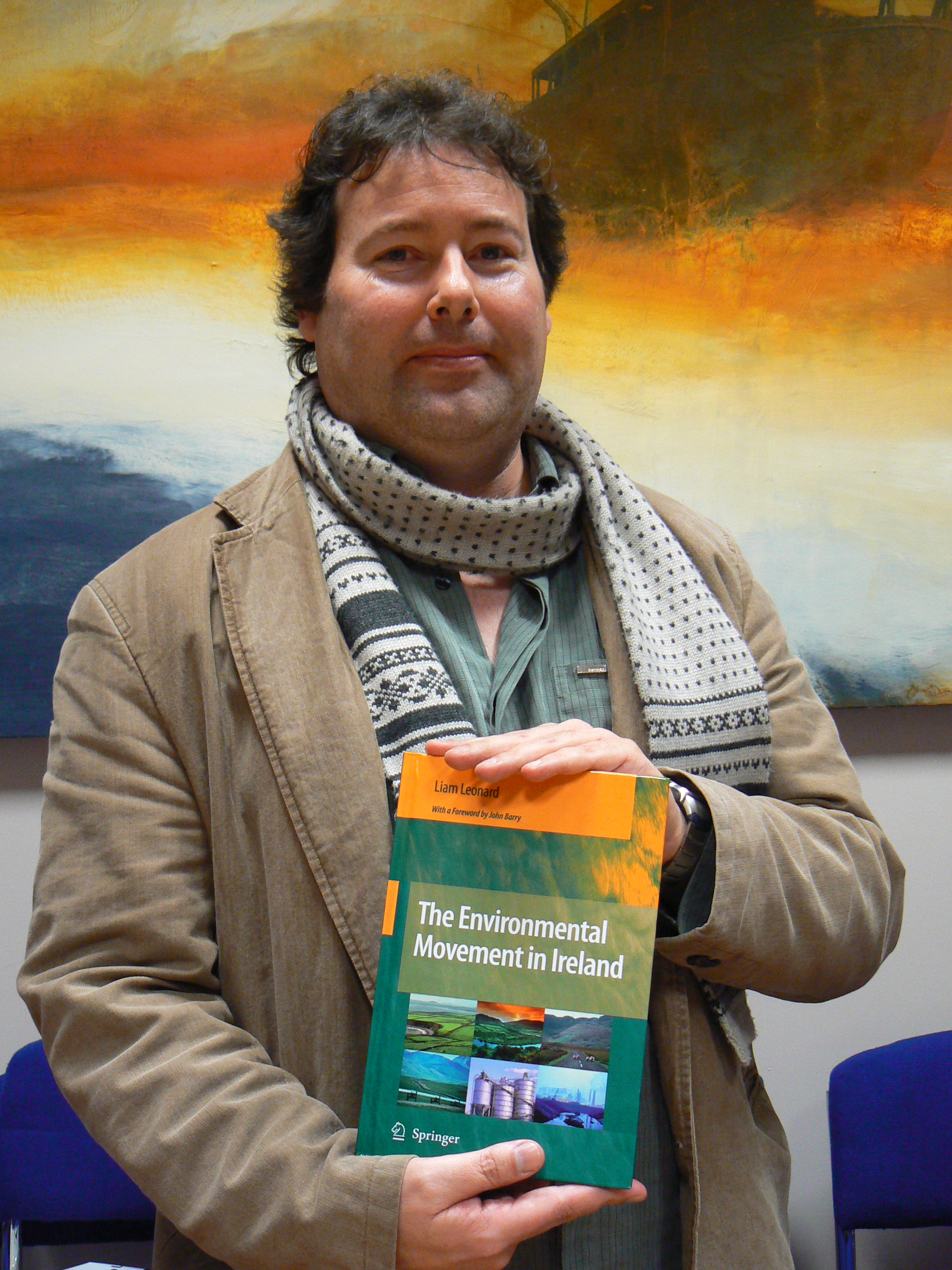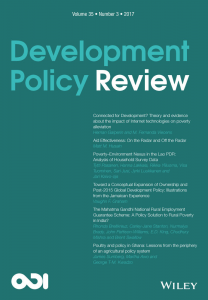Sociology Lens & WIREs Debate: "Climate change knowledge and social movement theory"
Sociology Lens and WIREs (Wiley Interdisciplinary Reviews) are delighted to present a debate here around the following article:
The following commentators will be discussing the issues raised in this article with the author using the comments thread below:
You can read the article under discussion for free here.
We encourage readers here to also join in the debate that unfolds below and to comment.
If you have any problems or questions, just email us.











Hello all,
My initial response is as follows:
The first question to emerge from my readings of Jamison’s insightful article and the other responses on the night that People Power was seen to overthrow despotic rule in Egypt is a broad one:
” Social movements can change society; but what form of social movement can save the world?”
One wonders if we can answer the question, let alone achieve the goal. However, hope springs eternal, and Jamison has provided us with a road map of how two movements emerged which certainly changed the world we inhabit.
The first of these was the new left or counterculture movement which combined elements of the civil rights, environmental, women’s and peace movements to create the post Earth Day ‘green movement’, amongst other transformative impulses.
The second movement was the neo-conservative/ neo-liberal reaction to the gains of the counterculture; this response encompassed everything from fiscal rectitude through to resource wars. To date, the new right’s achievements include increased greenhouse gas, climatic change and the downfall of global capitalism as we know it, as the buccaneering casino capital of recent years is replaced by the new austerity.
Jamison also outlines the significance of networked connectivity in this world view; every movement from left or right since the late 1980s including disparate groups ranging from the anti-globalization movement, neo-nazi skinheads, pro democracy protesters in Asia and the Middle East and even the Tea Party has developed around communications technologies and social networking media.
So, if the revolutions now begin on Twitter, why is there so much misunderstandings about the fundamentals of anthropogenic climate change? Have the skeptics performed so well? In my view, the green movement missed an opportunity with the emergence of corporate ‘greenwash’; surely this was a Trojan Horse moment that could have been exploited to better effect by the anti-globalization crew. The traditional strategies of mass protest on the streets of the latest G8 host city, may have benefited from a dialogue with the multinationals that went beyond the spin cycles of disaffected social democrats such as Gore and Blair.
Essentially, ecological modernization was a German/Dutch environmental approach to making technocratic planning and technological production a holistically green process. It was here that the best chance for challenging the pollution underpinning climate change lay. Moreover, a governance framework for eco-modern policies was developed within the European Union, creating a workable supra-state approach to the aspirations of the United Nations Commission on Sustainable Development in the post Soviet Union era of globalization, fundamentalism and the rise of Castell’s ‘Network Society’.
So, what happened? Why didn’t this core group of Euro-greens succeed in making the world a safer place?
Of course, the rise of the Neocons can be cited as the answer. George W. Bush had two targets in the firs weeks of his ill fated presidency. The first was Iraq, and the second was the UN. As a result, the potential of supra-state regulation of industry has been severely undermined, while the rise of regional geo-politics and nationalism has distracted minds from the bigger picture: that of planet Earth.
So how can this generation of academics add to the existing pool of what Jamison presents as ‘Climate Knowledge’? We continue the debates for one thing, and I am pleased to take part in this initiative from Wiley-Blackwell with other academics to keep the dialogue open, and the networks in place.
Andrew Jamison’s “Climate Change Knowledge and Social Movement Theory” makes the compelling case that social movements have provided the organizational and cognitive infrastructure—through the creation of resource streams and political opportunities, sets of activists with shared collective identity, and intellectual space—necessary to shape knowledge about climate change. In particular, he argues that three social movements have helped shaped three corresponding views about the impact of and response to long term alterations to the earth’s global climate. The neo-conservative movement of the 1980s has provided the infrastructure for development of the “oppositional position” or the skeptical view that questions whether there is a pressing need to deal with climate change. The neo-liberal movement of 1990s contributed to the “dominant position” or a view that promotes substantial reductions in carbon dioxide emissions using market mechanisms and “green business” approaches. The anti-globalization movement of the late 1990s and 2000s has shaped an “emergent position” or a view that recognizes the need to respond to global climate change in a manner that recognizes and addresses global justice issues.
As Professor Jamison notes, social movements are difficult to define. My first set of questions is intended to help distinguish these three movements from the political ideologies that inform them. The author argues that the neo-conservative movement emerged in response to the 1970s environmental and women’s movements and the knowledge claims made by these movements, including those claims about climate change. Thus, the neo-conservative movement was a sort of counter-movement to earlier environmentalism. Here are my questions: Can a similar case be made that the neo-liberal movement emerged to counter the knowledge claims of neo-conservatism and that the anti-globalization movement mobilized in resistance to the knowledge claims of either and/or both neo-conservatism and neo-liberalism? If so, what were the specific targets of these counter movements? What knowledge claims did each movement counter? How have various movement targets responded to the counter movements and their claims?
With a distinctly clear and enlightening writing, Andrew Jamison offers us his eclectic and insightful approach, this time examining Climate Change Contention at the end of the first decade of the 21st century. By linking Climate Change to the discursive politics of knowledge making which took place during the past fifty years, he provides an encompassing view of its cultural-economic milieu, emphasizes the importance of knowledge-making in environmental social movements and gives a fresh critique of ecological modernization approaches. In doing so, Jamison questions the dominant approach to climate change, where science is not carried out in an impartial manner, and therefore is not aimed at responding to climate justice issues. Overall, he succeeds in showing how climate change has shaped social movements, but also how climate change contention shapes social change.
Defining social movements is a basic issue which Jamison discusses within his well structured framework of climate change knowledge as a field of contention and cognitive praxis, where he distinguishes three ideal-typical positions: the dominant low-carbon, the oppositional skeptical and the emergent justice position. As the paper progresses, he gradually and steadily shifts the focus from a presentation centered on protest-oriented social movements into one where “social movements” are expanded to predominantly take the form of knowledge transforming processes. These conceptual contours moving from movements as challengers to movements as knowledge outcomes, or knowledge creators, lead to the following questions: Are there two different conceptions of “social movements” in the paper, one referring to “processes of political protest…” while the other one to “political ideology”? Who are the constituents of social movements under these two different conceptions? What theoretical implications emerge from the above?
Let me thank you for your comments and questions and do my best to respond.
The reason I wrote the piece was to bring into the open – or into the foreground – what is usually ignored or relegated to the contextual background.
On the one hand, I wanted to connect the contending positions in relation to climate change knowledge to broader political and social movements, and on the other I wanted to emphasize the very different meanings that knowledge has in those different movements.
In so doing I draw on the cognitive approach to social movements that Ron Eyerman and I developed in our books in the 1990s, where we conceptualized social movements as spaces, or sites for knowledge making. I use the concepts that we developed – cognitive praxis, movement intellectuals, and mobilization of tradition – to try to add some new insight into the climate change debate.
We developed the concepts because we felt that terms like resource mobilization, ideology and political opportunity structures were too instrumental and that terms like collective identity and symbolic action were too abstract to be able to understand how social movements contribute to the development of human knowledge.
As I try to show in the chart at the end, the climate change debate can be seen as a debate between different approaches to knowledge-making. The dominant position is a part of neo-liberal movements with their market-oriented, or commercial approaches to making knowledge, the oppositional position is part of neo-conservative or neo-nationalist movements with more disciplinary or traditional approaches to knowledge making, and an emerging position is part of a global justice movement, with what I have been calling in my recent writings as a change-oriented, or hybrid approach to knowledge making.
To respond to your specific questions, let me start with Liam.
He asks what happened to ecological modernization, and my answer in one word would be hubris, that is, it went too far in pushing its programs in those places, such as Germany, the Netherlands, Denmark – and the US and the EU – where it got some influence over government policy in the 1990s. The rise of Lomborg, for example, as I have shown earlier is a reaction to the Danish government’s ecological modernization policies, and Bush’s climate skepticism was a reaction to the Clinton-Gore position, which was pretty similar to ecological modernization. What happened was that too many environmentalists got captured or captivated or both by the neo-liberal movement, and didn’t do enough to connect their activity, or “solutions” to climate change to issues of justice and fairness. They went to market.
In response to Patrick I would say that neo-liberalism and neo-conservatism both emerged at about the same time, in the early 1980s, as contending approaches to environmental politics, the one anti-environmentalist and the other market-oriented. But that contention wasn’t just about knowledge claims, but about processes of actual knowledge making. The problem today is that the climate justice movement is not sufficiently mobilized or organized to make its own knowledge, that we are simply not doing enough collective learning in a space of our own about the connections between climate change and global justice.
In response to Maria I would say that my conception of social movement tries to combine processes of political protest and political ideology into the concept of cognitive praxis. By focusing on cognitive praxis, I want to emphasize what movements do. Yes, they have an ideology or a tradition that they mobilize, but what is important to try to understand better is how that ideology gets actually put into practice so that knowledge is made, or, to put it another way, a message gets spread. It is the integration of an ideology with actual knowledge-making practices that provides a cognitive core to social movements. The climate justice movement doesn’t have that yet; can we help?
I look forward to hearing more from you, and do hope that anyone reading this will join the conversation. I will be happy to respond.
Thank you for your reply Andrew.
In my inital entry, I was trying to make the point that the regulatory potential of Ecological Modernisation was borne of a combination of regulatory success at an EU and UN level, which was underpinned in the 1990s by the second wave of new left movements such as anti-globalization protests, regional environmental justice movements in developing nations and expert led activism in Northern European states such as Holland, Germany and Denmark.
This alllowed the Anglo-American Neo-Liberal consensus to be challenged by a form of green ideology which included activists and experts. It was media friendly, and even gained the support of ‘Third Way’ Social Democrats such as Clinton, Gore and Blair. This was a successful form of what you and Eyerman have described as ‘Cognitive Praxis’ and I was making the point that the successful media led ‘greenwash’ campaigns that surrounded ‘An Inconvenient Truth’ are not being replicated in the new social media of YouTube and Twitter, yet we are witnessing revolutions in the Arabic world borne of those same resources.
From a social movement perspective, I think we need to consider the problems for social movement derived agendas, such as green politics, in the aftermath of assimilation into the mainstream. The contentious strategies such as street protests do not in themselves lead to new ideological discourses, and this is where the eco-modern moment may have been lost.
New ideological discourses based on the three approaches established by the anti-global, environmental justice and eco-modern groupings need to established in order to build a Sustainable Justice movement which can reach out to protestors in the North African and Arabic nations and the South American and Asian nations in a manner which the campaigns of the 1990s failed to do.
It may be that a new global movement will emerge from the streets of Egypt and Bahrain, and that our understanding of the potential of ‘Climate Change Knowledge’ will be realised through a quest for a global form of environmental justice, that creates a truly sustainable form of development for the coming times.
I would be interested in your views on this, as well as those of the other contributors.
Just a quick response: I do not agree with you that ecological modernization was a success in bringing together activists and experts. On the contrary, as I tried to show in my book, The Making of Green Knowledge, its promulgation as an ideology in countries like Denmark led to a split or contradiction in the quest for sustainable development between what I called green business and critical ecology and contributed to the resurgence of anti-environmentalist movements. Rather than being a challenge to neo-liberalism, many environmentalists, in the name of ecological modernization, were captured by it. The ways in which technology and science and other expertise can be part of what you call a Sustainable Justice movement should, at least in my opinion, be much more explictly connected to the concerns of justice and fairness and the needs of local communities than was the case in the 1990s in the programs of ecological modernization. That is what I have been come to term a “hybrid imagination”, mixing technology and science with cultural understanding.
Following the response on the concept of social movement by Andrew Jamison, the eclectic approach is recognized and appreciated, especially as regards the contribution of “cognitive praxis”. However, if social movements combine processes of political protest and political ideology then one important question which arises concerns whether there is a “neo-liberal movement” (as described by Sklair 1997) which portrays both of these features. Do Sklair’s transnational “elite social movement organizations” for capitalism, described by Jenkins and Eckert (2000) as “Business Policy Organizations”, have both features of the social movement concept you propose – i.e. as challengers but also knowledge creators?
More specifically, is the “neo-liberal movement” described in the paper, a movement with a conflictual orientation carrying out a sustained challenge to specific social and political opponents, depicting the protest feature stated in the paper, as well as definitions by the political process approach? Or, is it mostly a “political ideology”? Subsequently, is “the integration of an ideology with actual knowledge-making practices” the outstanding characteristic of the concept of social movements applied in the paper?
Finally, another question arises considering the basic features of the climate justice movement. How important is the time frame when considering the cognitive aspects of the climate justice movement?
Good questions! Thanks, Maria. Let me try to repsond.
It is, in many ways, problematic to refer to neo-liberalism, or what I term green business as a social movement, since it is so different from what most people think a social movement is all about. It does, however, have both features of the definition I propose in that it most certainly developed as a challenge to traditional ways of doing politics and definitely has its own approach to making knowledge. It was a challenge both to traditiobal liberalism and conservatism, and the way I see it, it grew into a movement in the 1990s in direct opposition to the neo-conservatism of the 1980s. As the recent literarure on academic capitalism clearly shows, neo-liberalism also represents a broad based challenge to traditional ways of doing research and educating students. It has a distinctive, and, by now, well integrated cognitive praxis, combining a cosmological belief in the “market” with all sorts of practical techniques for transferring academic knowledge to the commercuial marketplace. It is this movement character which gives it a good deal of its attraction, especially to academics concerned with climate change.
As for the climate justice movement, I think it is important, in terms of its cognitive praxis, to see it as a challenge primarily to neo-liberalism and green business, which means that I very much see it as something not yet existing, a movement in the making, so to speak.
In addition to prof. Jamison’s fine analysis of links between social movements and climate knowledge, I waited for more of his own ‘cognitive approach’ emphasis. Now the focus was still more on movements that were seen as protestors or lobbyists. This is only part of social movement world. From cognitive point of view, I would like to hear more of those silent actors who don’t shout but do. Those teachers, youth workers and pastors that have included environmental awareness into their everyday teaching and, thus, created intellectual ‘resonance’ for activist message and general public world view. For example, since the World Council of Churches assembly in Canberra in 1991, the main churches have emphasised the holiness of the creation. In my own church, the Finnish Lutheran church, this teaching has been part of the standard confirmation school curriculum. Moreover, the church has launched an ecological standardisation process to make graveyards, camp-centres, churches and other buildings more ‘green’.
In addition to these silent institutional actors, there are a host of commoners who act with their choices in grocery stores every day. NGO-activists and missionaries try to develop ‘low high-tech’ solutions for the third world. These include solar ovens, purifying river water by putting it in bottles on the roof for the day, using old saris as water filters, etc. You can read of them more from science and technical magazines than from environmental publications.
These are all, on one hand, what Herbert Blumer called ‘general social movement’ – a trend that give potential to activism. On the other hand, in studies that make distinctions between SMs and nonprofits, the former are characterised as those who want the government to do the job while the latter oes tend to do the job by themselves. This distinction influences to the discussion as well since, especially in the US, NP-activity is highly regarded because of the traditional allergy of the state involvement.
Thus, from the cognitive praxis perspective, there is still much to study and this leads to inclusion of cultural history and world view studies (a la Berger & Luckmann) into SM studies.
I think your point is very well taken, Martti. One of the things that has long struck me about social scientific studies of environmental politics and now climate change is how rarely the cultural aspects that you mention are taken into account. The more personal or tacit forms of knowledge making that you refer to tend to be neglected by social scientists, as one more unfortunate consequence of the disciplining of thought that takes place at universities these days. That is one of the reasons why I developed the term green knowledge in my book to try to conceptualize environmental politics in relation to broader processes of cognitive and cultural transformation.
But perhaps the bigger problem is that these silent actors, as you call them, are often too silent and have left the more explicit political work to others. What seems necessary to me if we are to make a movement for climate justice that has some real impact is to find ways to connect the personal, or silent forms of environmentalism more directly to the often far too vocal forms that tend to dominate the public talk about climate change. We need to think much more seriously about how we can foster what I call a hybrid imagination, combining the kind of personal, or “micro-level” engagement you refer to to the broader, macro-level activities in the political and economic spheres. This involves new forms of academic research but also new forms of communication and interaction across the different domains of social life.
I am sorry I am to late to this discussion. But I add something anyway. My background is different as active in the environmental movement since the preparation of alternative activities at UN Conference on the Human Environment in 1971 at the local, national and international level. I am a lay person having my full time job as a teacher in exhibition design to attend to and do my activism on my spare time. This include coordinating international climate action days in 1991-92 and recently being international contact person for discussions before and during for Klimaforum09 in Copenhagen ending with a declaration including much of the perspective asked for here on climate justice and change in daily life and society. Right now I mainly focus on the issue of just transition of agriculture and forestry.
Jamison’s approach to see also neo-liberalism and neo-conservatism as social movements is most welcome in at least two ways. Firstly because there is a strong tendency in the environmental movement whether main stream or radical to overemphasize the uniqueness of our own role. In the 1990s this was explicitly expressed by eg Norwegian activists claiming the environmental and development NGOs as the forefront of democratic change in the world. The democratically ambigious NGO concept here excluding a broader social movement idea which puts emphasis also on the commoners in the Finnish church or any commoners was in practice in Norway well funded by the state, under the condition that the NGO ForUM did not engage in domestic or local issues. A core of professional NGO experts emerged well articulated on any global matter disconnected from a movement. Today the once maybe most radical environmental movement in Europe has changed and is all for technical solutions and ecological modernization sceptical about the climate justice demands. By also looking at neo-liberalism and neo-conservatism as social movements it is no longer possible t state that a social movement per se is good and the others are bad. It is eg necessary to have arguments why the change among many Norwegian social movement organisations from anti growth, to Brundtland sustainable development to technical fix promotion within the existing ruling order is either part of the neo-liberal social movement or the climate justice movement.
The second reason why it is important is that it will be necessary to address the issue of how neoliberal and neo conservative forces work as movement and not primarily as ideas. Once again we here come back to the issue of the commoners.
For the rest I could in detail confirm the positions on eco modernization made by Jamison in relation to the development at both local, national, European and international level with the Wuppertal institute and EU federalism as the ideological core of this comical elite environmentalism. Today it seems this has been defeated by the Stuttgart21 and Fukishima mass protests in Germany and at the Friends of the Earth Europe level the shift is significant from campaign after campaign on making EU more green and federalistic, well funded by the EU and with more or less no interest among the commoners in FoE groups were the elite were all for them, to a lot more critical view on EU based on ideas of social justice and the critique against Global Europe strategies. Eco modernization had more or less no backing at all from the commoners while having extreme strong support by the movement elite funded by external donors who we have to report to, an elite training themselves for job opportunities in the future which is very understandable but not the main purpose of an environmental movement.
Thus the notions made about the possibilities for the eco modernization project and the need for summit protesters to get in dialogue with them is antiempirical and have nothing with reality to do. On the contrary is much of deliberative democracy and social forum project more an expression of professionalisation of the movements by separating popular education from confrontation in practice with academics and their NGO professional elite allies in the forefront. A project to domesticate mass movements rather than the cute picture given in much academic litterature with the claim the the social forum is the global justice movement, and the equally cute standpoint that this global justice movement emerged with Seattle and than disappeared due to whatever odd reason the mass production of much academic nonsense claims (quite often the self appraisal of the lack of wanting to be part of the deliberative endless discussions in forums disconnected from struggle that many academics state is the form to change society). The whole idea that the core of the environmental movement is Germany, The Netherland, and the US is funny as if not the egytpitans started rebellion against IMF already in 1977 and continousl the mass movements have done so which once in a while movements in the west tries to understand and make something about until they go back to their dominant position to see themsleves as the centre of the world. The commoners in Xapuri in the rubber tapper movement allying themselves with the low land indians who in turn allies themselves with the high land indians are more crucial to understand were the climate justice movement is going than the self appraisal of among the Western NGOs and their academic allies.
In general I find all contributions to this debate interesting. Today the resources for reflecting upon social change more as a whole and even your own role as an environmental or other popular movement is strongly fragmenticized. Academics have often extremely more time to produce knowledge about what we are doing than we have ourselves. Thus the attempt by Jamison and others here to se a broader picture is most welcome. I see some academic bias and problems in some US centric use of words and empirical cases. non profit is a concept which is not understandable in most countries derived from a peculiar social order were the market is dominating and thus a concept emerge which confirms the strength of the market and builds into the words making the “non profit” actor subalternate to the market. This goes of course even more so for the cute NGO concept there to promote professional careers among people disinterested in society and interested in finding themselves a niche within the ruling order, a anti intellectual concept much promoted by the academic social movement there to colonize the movements to promote there odd cognitive processes rather than work side by side with the commoners to produce knowledge in common.
You find some more material mostly connected to the daily international struggles I am invilved in at http://www.aktivism.info/socialforumjourney and in Swedish Folkrörelsebloggen. For longer analysis on the emergence of the environmental movement from UNCHE towards UNCED and beyond as well as the global justice movement you find some material in english at http://www.folkrorelser.org. Unfortunatly my time to take part in these discussions is limited as my main focus is on just transition to solve the ecological and social crisis and the involvement at the moment to defend the 200 persons who were taken by the police during the aftermath of the Khmki forest conflict in Moscoe, soem being tortuded and now standing trial. all yours